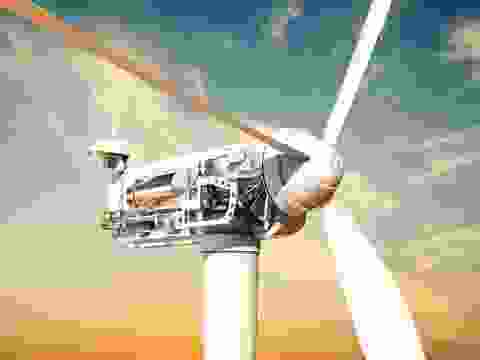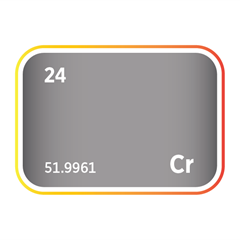Turkey
Critical minerals, policy, and the energy transition
The Energy Transition in Turkey
Turkey is fast emerging as a strategic force in the global energy transition, underpinned by its vast critical mineral endowment, growing clean energy capacity, and pivotal geopolitical location. Straddling Europe, Asia, and the Middle East, Turkey sits at the crossroads of global supply chains and energy corridors, offering both resource depth and geopolitical leverage in the race to decarbonise. The discovery of one of the world’s largest rare earth element (REE) deposits in Eskişehir, coupled with its dominance in boron production, positions Turkey as a critical enabler of technologies such as electric vehicles, wind turbines, and advanced defence systems. Simultaneously, its National Energy Plan (NEP) charts an ambitious pathway to quadruple wind and solar capacity by 2035, backed by nuclear deployment, hydrogen expansion, and $10 billion in grid modernisation. Turkey’s accession to the Minerals Security Partnership (MSP) in 2024 reflects its increasing alignment with Western efforts to secure strategic mineral supply chains, while new investment frameworks and Gulf partnerships are reshaping its industrial ecosystem. The country’s efforts to localise value chains—through refining, magnet production, and battery material development, highlight its bid to reduce dependence on Chinese intermediates. SFA (Oxford) explores how Turkey’s mineral wealth, clean energy strategy, and growing web of international alliances are converging to shape its influence in global energy and technology markets—offering opportunities for climate-aligned industrial growth and long-term geopolitical leverage.
Latest news and insights
Stay ahead in the energy transition with SFA (Oxford)’s cutting-edge insights into how rare earths, energy security, ESG policy, and Eurasian geopolitics are reshaping Türkiye’s strategic energy direction.
Turkey's international economic, trade, and security alliances
Turkey's Critical Minerals and Clean Energy Transition
Turkey stands at a pivotal moment in its economic and environmental trajectory, capitalising on its abundant critical mineral resources to accelerate a far-reaching energy transition. With the discovery of the world’s second-largest rare earth element (REE) deposit in Eskişehir and its dominant position in boron production, Turkey is actively positioning itself as a key player in the global shift towards renewables and advanced technologies. By leveraging its geological endowment and expanding strategic alliances, Turkey can mitigate supply chain vulnerabilities, catalyse domestic industrial growth, and align with global climate targets. However, this ambition will depend on balancing economic imperatives with environmental stewardship and nurturing an innovation-driven ecosystem. As global demand for critical raw materials surges, Turkey’s ability to navigate these pressures will determine whether it becomes a regional leader or a marginal participant in the energy transition.
The REE deposit in Beylikova, Eskişehir, discovered in 2022, is one of the world’s largest, with 694 million tonnes of estimated reserves. It contains 10 of the 17 critical rare earths, including neodymium, lanthanum, and cerium, vital for electric vehicle motors, wind turbines, and defence systems. A pilot plant currently processes 1,200 tonnes per year, with plans to scale up to 570 kt by 2030. This initiative is central to Turkey’s aim of reducing reliance on Chinese REE imports, which currently represent 61% of the global market.
Thorium, a by-product of REE processing, has the potential to support Turkey’s nuclear energy roadmap. With an annual production target of 250 tonnes, thorium could eventually serve as an alternative nuclear fuel. The Rare Earth Elements Research Institute (TENMAK NATEN), established in 2020, is leading domestic R&D efforts to align Turkey’s processing technologies with global ESG standards.
Turkey controls over 70% of the world’s boron reserves, primarily located in Balıkesir (Bigadiç) and Kütahya (Emet). State-owned Eti Maden leads production, generating $1 billion in annual sales and aiming for $2.5 billion by 2025. Boron derivatives, such as colemanite and ulexite, are essential inputs in solar glass, ceramics, and lithium-ion batteries. The Kirka deposit alone produces 5.5 million tonnes annually, accounting for 40% of global borate supply.
Turkey also ranks among the top global producers of chromium (12.9%), and holds measurable reserves of magnesium (1.3%) and cobalt (1.1%). Chromium is essential for alloy and stainless steel production, supporting Turkey’s automotive and aerospace sectors. Magnesium’s use in lightweight alloys supports EV manufacturing. Lithium discoveries in Central Anatolia are promising but remain in the early stages of exploration.
In 2024, Turkey formally joined the Minerals Security Partnership (MSP), a US-led alliance of 14 countries aiming to secure critical mineral supply chains and reduce reliance on China. Membership opens the door to technology transfer, joint ventures, and co-financing for REE and boron projects. The Beylikova deposit is expected to supply 10,000 tonnes of rare earth oxides annually to EU and US markets.
To reduce dependence on Chinese intermediate goods, Turkey is prioritising expansion of domestic REE refining capacity, high-purity oxide production, and magnet manufacturing.

Renewable expansion, energy diversification, and grid modernisation in Turkey
Turkey’s National Energy Plan (NEP) sets out a bold strategy to reduce reliance on fossil fuels, which currently account for 70% of primary energy consumption. At its core is a fourfold increase in wind and solar capacity, reaching 120 GW by 2035. This transition will require $60–75 billion in new generation capacity and a further $10 billion for grid modernisation. Solar capacity is forecast to grow from 10.1 GW to 52.9 GW, while wind is expected to hit 29.6 GW, including 5 GW of offshore projects in the Aegean and Black Seas. The Renewable Energy Resource Zone (YEKA) initiative is central to this expansion, promoting localised manufacturing of solar panels and wind turbines, reducing import dependency and creating an estimated 50,000 jobs.
Cooperation with GCC countries, particularly the UAE and Saudi Arabia, has unlocked over $5 billion in funding for Turkish renewable energy projects, including Masdar’s 1.5 GW wind development in Anatolia. These partnerships combine Turkey’s industrial capabilities with Gulf financing, helping to establish hydrogen export corridors and cross-border power trade.
Turkey’s first nuclear power plant, Akkuyu, is expected to deliver 4.8 GW of baseload capacity by 2028. Plans for an additional 5 GW of capacity from small modular reactors (SMRs) by 2035 are under way. Hydrogen also plays a growing role: the government targets 5 GW of electrolysers by 2035, scaling to 70 GW by 2053. This will support decarbonisation of heavy industries and facilitate hydrogen exports to Europe. A recent partnership with Saudi Arabia on hydrogen technology illustrates Turkey’s outreach to Gulf Cooperation Council (GCC) states for financial and technical cooperation.
A $10 billion investment programme is underway to upgrade Turkey’s grid infrastructure, aimed at reducing transmission losses from 15% to 8% by 2030. Digitalisation measures—including smart metering and demand-response systems—will enable greater flexibility. The 2024–2030 Energy Efficiency Action Plan targets a reduction of 100 million tonnes of CO₂ via retrofits, industrial process upgrades, and increased uptake of electric vehicles. AI-driven grid management and distributed storage systems are also being rolled out to manage renewable intermittency and improve system resilience.
Regulatory framework and investment environment
Under Article 168 of the Turkish Constitution, all mineral resources are state-owned, with licensing overseen by the General Directorate of Mining and Petroleum Affairs (MAPEG). The Mining Law (No. 3213) mandates environmental impact assessments (EIAs) and stakeholder engagement. Amendments in 2023 fast-tracked permitting for critical mineral projects, reducing timelines from four years to two and offering tax reliefs.
Renewables are governed under the Electricity Market Law (No. 6446), with wind and solar projects eligible for feed-in tariffs (YEKDEM) of $0.073/kWh. Competitive auctions under the YEKA programme have driven tariffs down to record lows, including a $0.024/kWh bid for a 1 GW solar farm in Konya. However, persistent issues include grid connection delays and land-use conflicts, particularly with agricultural zones.
Turkey's energy and power mix
Derived and processed Critical Minerals products and recycling in Turkey
Energy Raw Materials and products produced in Turkey
Essential minerals production and products in Turkey




Meet the Critical Minerals team
Trusted advice from a dedicated team of experts.

Henk de Hoop
Chief Executive Officer

Beresford Clarke
Managing Director: Technical & Research

Jamie Underwood
Principal Consultant

Ismet Soyocak
ESG & Critical Minerals Lead

Rj Coetzee
Senior Market Analyst: Battery Materials and Technologies

How can we help you?
SFA (Oxford) provides bespoke, independent intelligence on the strategic metal markets, specifically tailored to your needs. To find out more about what we can offer you, please contact us.


















































































